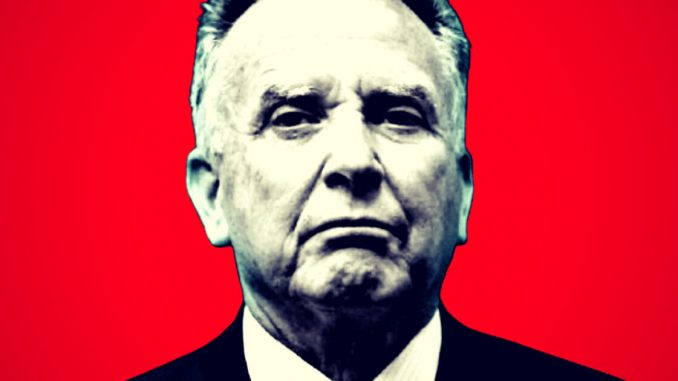
US Envoy Steve Witkoff has the greater reach in the Russian government of all US officials.
| Published August 5, 2025
Witkoff will discuss Russia’s war on Ukraine as Trump says again that he wants a ‘deal where people stop getting killed’.
Mission Impossible: Trump’s Envoy Steve Witkoff Heads to Moscow
Background & Stakes
-
Steve Witkoff, a real estate billionaire turned U.S. special envoy to the Middle East since January 2025, has emerged as Donald Trump’s go‑to negotiator on global crises. He previously secured a prisoner swap with Russia and helped broker a ceasefire between Israel and Hamas earlier this year.
-
In recent weeks, President Trump has sharpened his tone toward Moscow—labeling its military actions in Ukraine as “disgusting” and issuing an August 8 deadline for Russian President Vladimir Putin to halt the war or face unprecedented escalation in sanctions. That escalation would include secondary tariffs targeting Russia’s energy trade with India and China.
The Moscow Visit
-
On August 6 or 7, Witkoff is expected to land in Moscow to pursue direct talks with Kremlin officials, possibly even President Putin. His mission: deliver the ultimatum and probe whether Russia is ready to negotiate a ceasefire.
-
The Kremlin has publicly welcomed Witkoff’s visit, calling it “important, meaningful, and very useful,” signaling willingness for closed-door diplomacy even amid heated rhetoric.
Witkoff’s Controversial Role
-
Despite his limited diplomatic experience, Witkoff’s personal rapport with Putin—reportedly cultivated over multiple visits—has drawn criticism. Some U.S. analysts accuse him of echoing Kremlin talking points—particularly on Ukraine’s relationship with NATO and justification of the invasion.
-
Critics argue his openness to recognizing Russia’s annexation of eastern Ukrainian territories aligns with Moscow’s maximalist war goals. Still, proponents say his unorthodox approach has produced results where traditional diplomats have failed.
Can He Deliver?
-
Trump’s hardline pivot—deploying nuclear submarines to the region and threatening steep tariffs—marks a stark contrast to his earlier warm rhetoric toward Putin. Witkoff arrives in Moscow with tools of diplomatic pressure unlike any he’s wielded before.
-
Yet the Kremlin appears unmoved. Russian military operations continue, including continued advances near Pokrovsk and deployment of new hypersonic missiles. Putin insists any peace deal must preserve Russian gains and exclude Ukraine and Western intermediaries.
-
On this visit—their first since Trump escalated his rhetoric—it remains unclear whether Witkoff can persuade Putin to compromise. Observers in Kyiv remain skeptical but cautiously optimistic that renewed U.S. pressure might open a narrow window for diplomacy.
 Implications:
Implications:
Here are the key implications of Steve Witkoff’s high-stakes visit to Moscow:
1. Diplomatic Gamble at a Critical Juncture
Witkoff’s visit signals that the Trump administration is still pursuing diplomacy, despite threatening unprecedented sanctions. It implies:
-
The U.S. wants to appear reasonable to allies and adversaries alike—offering Moscow one last chance before a hard escalation.
-
Trump is outsourcing sensitive foreign policy to a trusted, informal figure rather than traditional State Department diplomats, continuing his preference for personal channels.
2. Test of Trump’s Foreign Policy Style
This trip underscores Trump’s continued reliance on unconventional envoys like Witkoff, echoing his past use of Jared Kushner or Rudy Giuliani in global matters. This has two major implications:
-
Short-term: May allow for breakthrough diplomacy if personal ties and backchannels succeed.
-
Long-term: Undermines traditional diplomacy and increases dependence on loyalty over expertise, which could backfire if talks fail or lead to miscommunication.
3. A Hard Deadline with Real Teeth
The August 8 deadline isn’t symbolic. Trump has promised:
-
Secondary tariffs on Russian oil exports, even to India and China—measures that would ripple through global markets.
-
This signals a more aggressive sanctions regime than what Biden used, and a willingness to weaponize U.S. trade dominance further.
If enforced, these actions would test U.S. alliances with India, China, and even the EU, and possibly drive Russia closer to non-Western coalitions.
4. Signal to Allies—and Adversaries
Witkoff’s mission sends multiple messages:
-
To NATO and Ukraine: the U.S. is still leading, but possibly ready to accept a ceasefire that freezes territorial lines.
-
To Russia: there is still an off-ramp, but the cost of refusal will be severe.
-
To China and Iran: Trump may be preparing to use economic warfare in other regions too—especially where energy flows are involved.
5. Kyiv Caught in the Middle
Ukraine could face enormous pressure to accept a ceasefire on terms that preserve Russian territorial gains. If Moscow and Washington reach a deal:
-
Zelensky’s government may feel abandoned or forced into an unfavorable settlement.
-
U.S. unity with Kyiv may fracture depending on what Trump agrees to behind closed doors.
6. Elevated Role for Backchannel Diplomacy
This trip may normalize the use of nontraditional envoys in high-stakes negotiations, especially when public diplomacy is gridlocked. That precedent could:
-
Empower future business figures or informal actors in diplomacy.
-
Undermine institutional foreign policy channels like the State Department or the NSC.
7. Domestic Political Optics
For Trump, this is also about optics before a potentially volatile international crisis:
-
If Witkoff succeeds, it becomes a major win for Trump ahead of U.S. midterm elections.
-
If he fails—and Russia ignores the ultimatum—Trump will be forced to act decisively or risk appearing weak, especially after his prior criticisms of Biden’s handling of the war.
 Overall Takeaway:
Overall Takeaway:
SOURCES: THE GATEWAY PUNDIT – MISSION IMPOSSIBLE: US Envoy Steve Witkoff Goes to Moscow on Wednesday, Trying to Salvage Ukraine Peace Process Two Days Before New Trump Sanctions Are Expected to Hit Russia
EURONEWS – Trump sends Witkoff to Moscow days before US sanctions hit Russia
AL JAZEERA – Trump says US envoy Witkoff to travel to Russia ‘next week’
AP NEWS – Steve Witkoff has gone from spotting Trump cash at a deli to helping him navigate Ukraine and Gaza





Be the first to comment